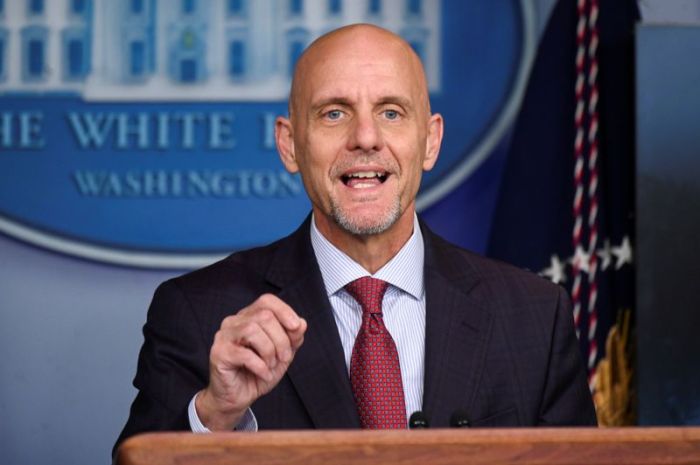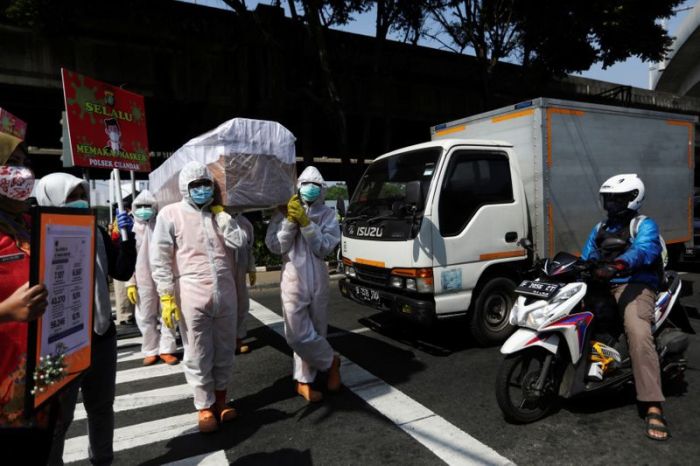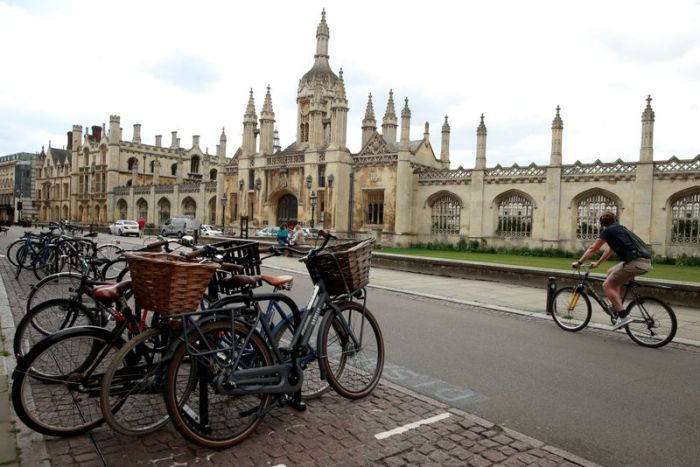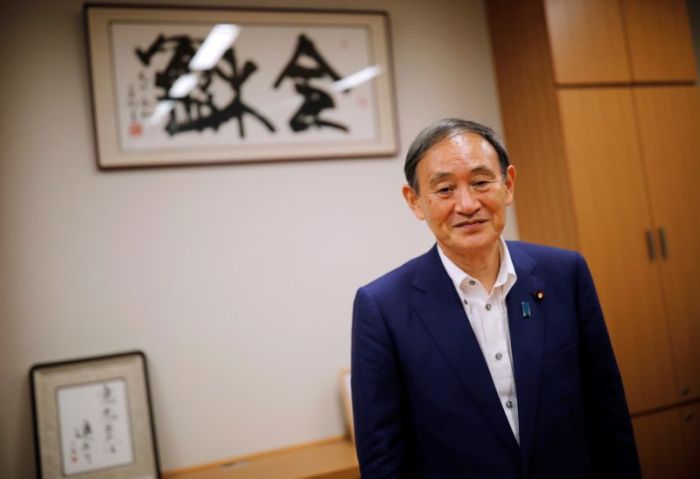TOKYO (Reuters) – Japanese Prime Minister Shinzo Abe’s decision to step down on Friday because of worsening health will formally put an end to his “Abenomics” strategy, which tried to revive the world’s third-largest economy after decades of stagnation.
So how does Abenomics stack up?
Reuters surveyed 18 experts to gauge their perceptions of Abe on five areas: ending deflation; fiscal reform; labour-market reform; encouraging business and investment; and deregulation.
Respondents were asked to rate each topic with “achieved”, “partially achieved” or “failed”. Below are some highlights from their comments, gathered before Abe announced his resignation.
1/ENDING DEFLATION
Q: How do you rate Abe’s attempt to reflate the economy, create jobs and end deflation?
MARC OSTWALD, CHIEF ECONOMIST, ADM INVESTOR SERVICES
FAILED
“Outside of a tighter labour market, but with no real impact on wages, the economy is way short of that 600 trillion yen (GDP) target and inflation continues to hover near zero.”
RICHARD JERRAM, CHIEF ECONOMIST, TOP DOWN MACRO
ACHIEVED
“Before COVID-19 hit, Japan had enjoyed several years of strikingly tight labour markets and solid growth (for Japan). Inflation had edged into positive territory, while well below the BOJ’s 2% target, but other developed economies have seen a similar difficulty in raising inflation despite solid growth, so we should not view Japan’s recent record too harshly.”
MASAKI TAKETSUME, FUND MANAGER, SCHRODERS TOKYO FUND
PARTIALLY ACHIEVED
“Japan has been through a long period of deflation, but because of Abenomics the Japanese economy has gotten out of deflation to a very low but still an inflationary environment
“At the same time, for the BoJ the offshoot target for inflation is the same as in other countries – which is 2% – and the current level of inflation is far short of that target.”
2/FISCAL REFORM
Q: How successful was Abe in fixing Japan’s finances and reining in public debt?
BRIAN KELLY, MANAGING PARTNER, ASIAN CENTURY QUEST
ACHIEVED
“While the current COVID situation has shredded Japan’s fiscal situation like so many other countries, I would agree with the notion that he has largely accomplished what he set out to do – raising consumption taxes while keeping corporate taxes shielded from higher nominal rates.
“This policy, which has continued in various forms for decades, ensures that domestic consumption will remain stagnant.”
PAUL SHEARD, RESEARCH FELLOW, HARVARD KENNEDY SCHOOL
FAILED
“The flaw in Abenomics was the reflationary policy shift at the BOJ, for which PM Abe gets full marks, would establish the necessary conditions for the Abe administration to push ahead with the plan to double the consumption tax rate… The problem was that this fiscal tightening was inimical to the reflation objective.”
“Prime Minister Abe should have delayed hiking the consumption tax (to 8%, let alone to the eventual 10%) until at least the BOJ had achieved its, and the government’s, aim of sustained 2% CPI inflation.”
STEVEN VOGEL, UNIVERSITY OF CALIFORNIA, BERKELEY
PARTIALLY ACHIEVED
“The government was right to favour recovery over fiscal balance. Hence it made sense to move to fiscal expansion, but it pulled back too soon.”
3/LABOUR REFORM
Q: How do you rate Abe’s ability to push through reforms to boost productivity and generate sustainable wage growth?
JOSHUA HAUSMAN, UNIVERSITY OF MICHIGAN
PARTIALLY ACHIEVED
“The large increase in female labour force participation was a significant policy success.”
ERIC STEIN, CO-DIRECTOR OF GLOBAL FIXED INCOME, EATON VANCE (Comments reflect pre-COVID environment)
ACHIEVED
“They’ve gotten a fair amount done. The latest statistics I’ve seen (show) female labour participation is up pretty significantly. My sense is that the labour market is getting reformed. Some of the rigidities in the labour market are improved.
“I’d say achieved but still more work to go.”
SAMUEL TOMBS, CHIEF U.K. ECONOMIST, PANTHEON MACROECONOMICS
FAILED
“Structural reform, or the third arrow, has been the declaring failure of Abenomics. Even the government’s signature immigration reform last year was much ado about nothing, in practice.”
STEVE COCHRANE, CHIEF APAC ECONOMIST, MOODY’S ANALYTICS
PARTIALLY ACHIEVED
“Efforts have been made. Women’s share of the workforce has increased and the government has worked to ensure day-care is available for children to allow women with young children to enter the workforce. Some industries have been opened up to foreign labour, but not all.
“More importantly, a rising share of workers are hired on a part-time basis without traditional paths to advancement and career development. The liberalisation of the labour market still has a long way to go solve the problem of a shrinking labour pool.”
4/BUSINESS & INVESTMENT
Q: How successful was Abe in making Japan a more attractive place to invest and visit?
ULRIKE SCHAEDE, UNIVERSITY OF CALIFORNIA, SAN DIEGO
ACHIEVED
“Excellent. The corporate governance reforms, combined with the stewardship code, have made Japan’s system – on paper – as good or better than that in the EU or U.S. Of course it is not perfect in reality, and there are always scandal cases, but that is true for all systems.
“If you look at the numbers… you see that 50% of Japanese shares traded at the TSE are now held by foreigners and institutional investors. Moreover, in the period of 2017-2019, Japan has attracted more private equity investments than any other country, and Japan’s M&A activities are second after the U.S.”
BRIAN KELLY, MANAGING PARTNER, ASIAN CENTURY QUEST
FAILED
“Japan as a market remains unattractive for obvious demographic reasons, including the oft-cited labour rigidities. Japan’s tax rates are uncompetitive with neighbouring countries, hands down, as they pertain to the services industry.
“The efforts regarding (corporate governance) and stewardship were sincere and indeed commendable, but like so many such efforts over the decades there is little enforcement and virtually no penalties for non-compliance.”
VALENTIJN VAN NIEUWENHUIJZEN, CHIEF INVESTMENT OFFICER, NN INVESTMENT PARTNERS
PARTIALLY ACHIEVED
“Changes in corporate governance through the unwinding of many cross-shareholdings and tearing down walls that protect companies from activist shareholders are steps in the right direction and are making companies more independent and profitable.
“However, many of these aspects are embedded in (Japan’s) corporate culture and take time to change. But we are slowly but surely seeing the effects of this with improving overall profitability. This makes the equity market more attractive to invest in.”
5/DEREGULATION
Q: How much success did Abe have in removing barriers hampering innovation in health care, energy, agriculture and other industries?
KOTARO TAMURA, ASIA FELLOW, MILKEN INSTITUTE
ACHIEVED
“Abenomics created preferential tax treatment for angel investors. It promoted investment into promising start-ups by giving a kind of government guarantee.
“Start-up investments grew at 20% per annum since then. Thanks partially to COVID-19, deregulation in such areas as telework and telemedicine were carried out.”
PETER DIXON, GLOBAL FINANCIAL ECONOMIST, COMMERZBANK AG
PARTIALLY ACHIEVED
“There has been some progress but it is limited so far. I get the sense that politicians continue to talk about it but are struggling to implement it in all the areas necessary.
“It has had some success in areas such as electricity, so it has proven that it can deliver, but the vested interests which prevent big-bang reforms mean that there is a lot still to do and future progress will depend on whether Abe’s successor is as reform-minded.”
RAJIV BISWAS, ASIA-PACIFIC CHIEF ECONOMIST, IHS MARKIT
PARTIALLY ACHIEVED
“Japan has made important energy policy reform achievements under Prime Minister Abe, towards reducing carbon emissions in line with global targets under the UN Climate Change Agreement.
“Japan has a target to double the contribution of renewables to 24% by 2030. Solar power increased from 1.9% of total power generation in 2014 to around 7.4% by 2019.”
(Reporting by William Schomberg, Olga Cotaga and Rachel Armstrong in London, Ann Saphir, Megan Davies and Karen Pierog in U.S. bureaus, and Leika Kihara and Daniel Leussink in Tokyo; Editing by David Dolan and Gerry Doyle)




















